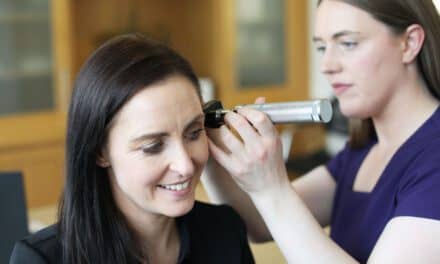Digital health company Oto and clinical trial start-up Lindus Health announced the launch of a fully remote, digital trial to increase patient access to life-changing tinnitus therapy.
Tinnitus, which is often described as “ringing in the ears”, can have a significant impact on everyday life, causing problems such as insomnia and depression. In Europe, persistent tinnitus is estimated to affect 1 in 8 people, around 15% of the population. There is currently no cure for tinnitus.
Through their digital, evidence-based cognitive behavioural therapy (CBT) program, Oto’s tinnitus specialists combine first-hand experience with professional expertise to increase patient access to tinnitus management and reduce self-reported distress and illness severity.
Further reading: Optimizing Sound Quality to Reach More People with Tinnitus
“As tinnitus continues to be an issue blighting around 15% of the UK population – and with no single cure in sight – this trial will be fundamental in helping those who suffer to better manage their symptoms,” says Michael Young, co-founder of Lindus Health. “With the ability to offer a fully-remote trial, we’re helping people from all over the UK to gain access to life-changing coaching – with our process delivering clinical trials three times faster than the industry standard”.
The trial will see 198 patients across the U.K. take part in a fully-remote, digital study to assess Oto’s smartphone tinnitus management programme against therapist-delivered CBT in achieving improvement in self-reported tinnitus severity in adults.
“This trial represents a significant milestone for Oto, allowing us to be the first to conduct this groundbreaking tinnitus research. We hope this will provide the scientific backing to accelerate our mission of giving people their lives back from tinnitus,” says Edmund Farrar, CEO at Oto.
Lindus Health is responsible for delivering the trial end-to-end, including protocol draft, data collection and management, recruitment, and trial monitoring.
“This clinical trial is really exciting as we are testing an entirely remotely delivered therapy that would have little limit on expansion to enable far more patients to be treated, whilst still maintaining much of the personalisation of therapy that tinnitus patients benefit from,” says Matthew Smith, consultant ENT surgeon in Cambridge and chief investigator for the trial. “With the support of Lindus Health, the trial itself is an exemplar in technology enhancing clinical trial efficiency, and we have been able to set up and start recruiting at a very fast rate, reaching all corners of the UK, and ensuring both a diverse population of participants and equitable access to all tinnitus sufferers.”
If the Oto tinnitus management program is shown as effective as standard one-to-one tinnitus therapy, this could have real benefits in terms of providing both healthcare providers and a far greater number of affected individuals with patient-focused, cost-effective treatment.
Graphic: Lindus Health





